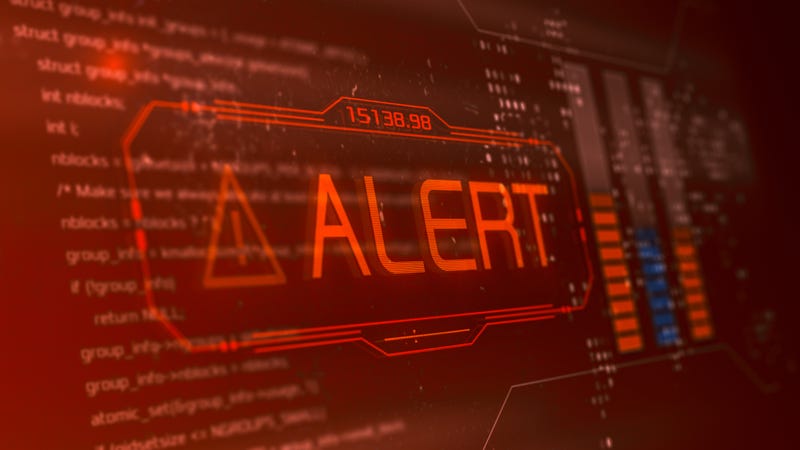
In February, The President of the United States said of China, “If we don’t get moving, they are going to eat our lunch.” The statement came as President Biden met with a group of bipartisan senators regarding the ailing state of American infrastructure.
The night before, the president and China’s leader had a 2-hour phone conversation regarding our ambitious rival’s strategy to dominate the 21st century.
While campaigning for the job, Mr. Biden scoffed at the very idea stating that “they’re not competition for us.” Come on, man.
Speaking in Tulsa earlier this month, President Biden told a group gathered to honor the victims of racial violence during a 1920 mob attack on what was known as ‘Black Wall Street’ that “…terrorism from white supremacy is the most lethal threat to the homeland today — not ISIS, not al Qaeda - white supremacists.”
Speaking in England last week, the commander-in-chief told US service members at RAF Mildenhall that, when he was vice president under Barack Obama, top military leaders told him that, due to migration and conflicts over arable land, global warming was the greatest threat facing America.
That threat is interesting considering that long-range, nuclear-capable intercontinental ballistic missiles in China are currently aimed at US cities.
Last Wednesday, China’s Foreign Ministry spokesman, Wang Wenbin, said “The biggest threat to the US is the US! Getting its own house in order trumps all else.”
He believes that US lawmakers and media have created an ‘imaginary enemy’ when discussing his nation’s plans for world economic and military dominance.
Maybe China is right. Maybe we are our own greatest threat. Maybe our house is a mess.
After all, crime is surging as we talk of defunding police, we carry unholy debt loads as our spending surges, inflation is hitting a 14 yr high, the energy economy is being shuttered which increases our dependency, our sovereign borders are left largely unprotected, our education system has fallen to ‘average’ in international rankings, and, at least, $250 billion of pandemic unemployment assistance has been stolen by nefarious groups overseas - including China.
Quite a picture we are painting.
And, I did not even mention the scourge of addiction that has stolen more than 841,000 American lives since prescription opioids hit the market in 1999. The hideous results of 2020 have not yet been included by the CDC.
Let’s face it: there are many varying degrees of threat to this ‘experiment in democracy.’ It all just depends on who you are talking to. Many would say that apathy is an omnipresent core to any struggling or threatened endeavor.
In all the finger-pointing and philosophy, one critical threat to the homeland has been overlooked.
It just happens to be the one that could wipe us out in a nano-second rather than decades: Cyberattacks. Hacking. Phishing. Ransomware. Whatever you want to call it.
The centers for this modern-day piracy are located in China, Iran and its proxies, North Korea, a re-emerging Russia and its former Soviet satellites, among others.
Billions of dollars a year are paid out in ransom to detestable groups who encript unsuspecting or undefended government, business, and personal networks and files.
The blocking of access happens in the blink of an eye once they enter your systems. The veil is lifted just as fast once the bribe is paid or information is obtained.
Look how vulnerable we have allowed ourselves to become:
Currently, 60 members of the US House of Representatives cannot access constituent data because a vendor has been hacked. This issue has been going on for weeks.
In May, the largest fuel pipeline in the United States was forced to shutdown and pay $5 million to a Russian-based group. Many regions along the east coast ran out of gasoline.
While this was happening, 85% of the population in Norway did not have access to water as treatment facilities were involved in a cyber takeover.
These incidents were followed by the ransomware attack that forced the world’s largest meat producer to temporarily shut down.
In April, airline reservation systems around the world crashed due to a malware attack and two groups sponsored by the Chinese communist government exploited US defense contractors.
The NBA’s Houston Rockets were also exploited by hackers.
In March, Iranian hackers targeted medical researchers in the US and Israel while Russian hackers breached email servers at the US State Department.
Microsoft servers, which everyone uses, were hacked by the Chinese government. Information of 30,000 infectious disease researchers, law firms, defense contractors, government agencies, legislators, and policy wonks around the globe was stolen.
Meanwhile, the head of US Cyber Command testified that there were dozens of foreign threats against our 2020 elections.
In February, The Oldsmar, Florida water supply was exploited remotely. It was a test run of future hacks on water systems around the globe.
Also, three North Koreans were indicted by the Department of Justice for trying to extort or steal $1.3 billion. While, in January, Hezbollah hackers breached internet providers and telecom companies in the US.
For better or worse, the world is connected. Your information is out there whether you like it or not. Medical records, tax documents, credit card information. You name it.
Just remember: If you, or any agency, can access anything remotely - be it a bank account, baby monitor, smart thermostat, work files or water and power grids - so can anyone else.
The FBI is now warning of ongoing ransomware campaigns targeting law enforcement, government, energy, financial, transportation, health agencies, and any other aspect of our existence.
Seems like a pretty big threat to me.
Kevin Battle has ruled out dating anyone named ‘Siri’ or ‘Alexa.’ He is Co-Host of the KDKA Radio Morning Show with Larry Richert. The show airs M-F 5a-9a on Pittsburgh’s 100.1FM & AM1020 KDKA or on the free Audacy app. Ask your smartspeaker to: ‘Play Newsradio KDKA’ if you dare.
